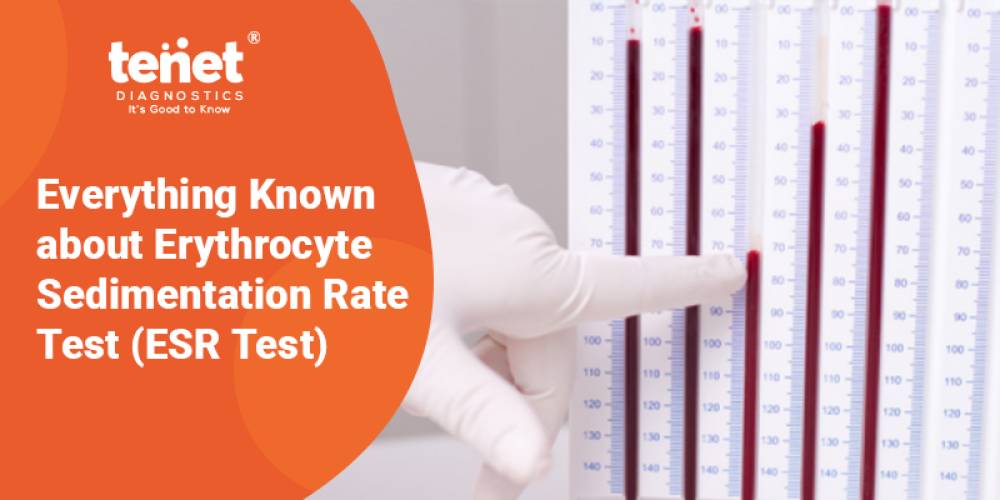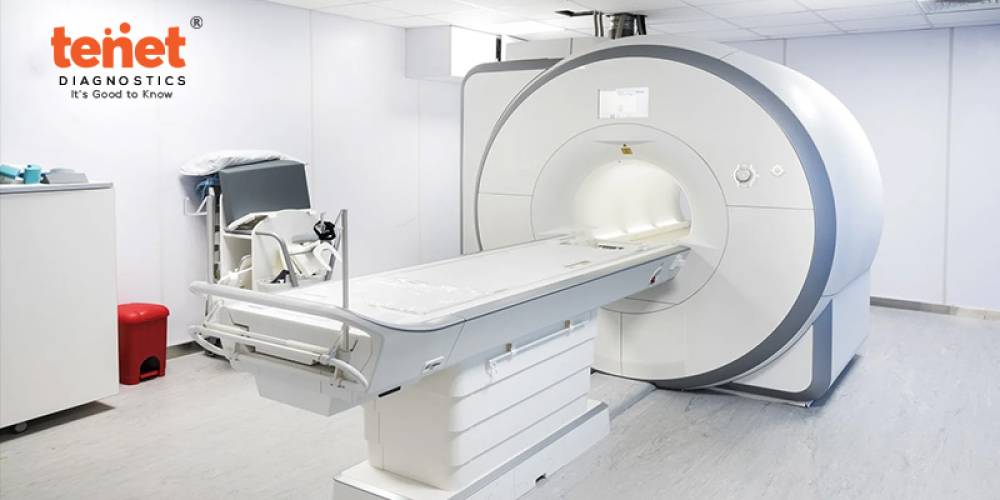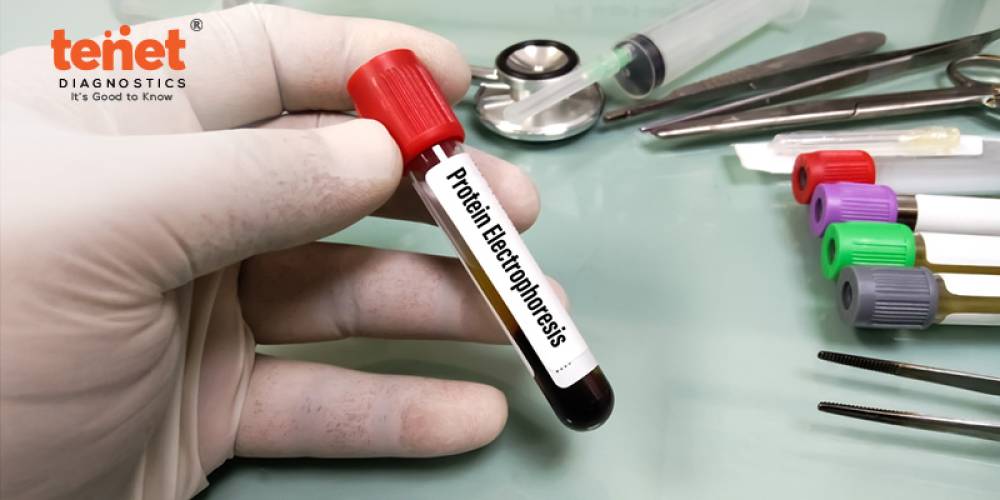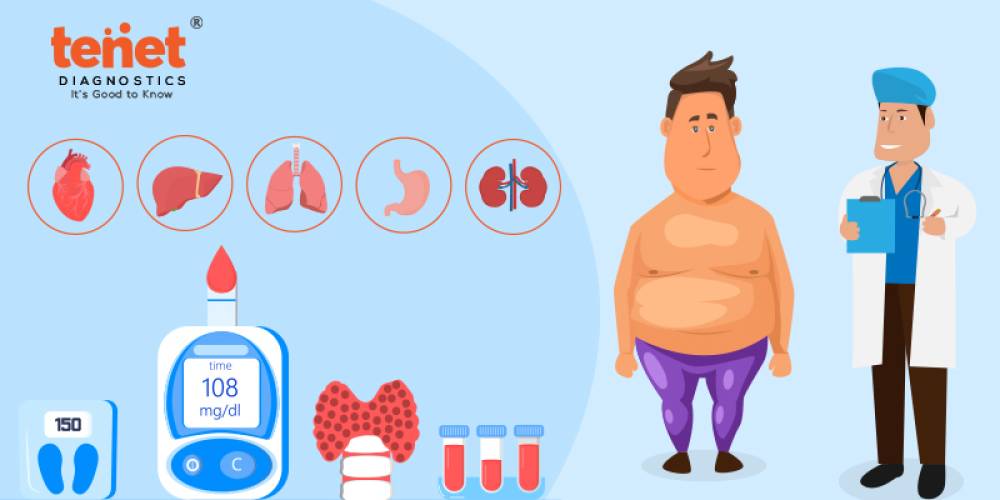The Erythrocyte Sedimentation Rate (ESR) test is a significant diagnostic tool, offering insightful information on the body's inflammatory state. This technique, frequently called the "sed rate" test, gauges how quickly red blood cells settle in a tube over a predetermined time, providing a critical but non-specific indication of inflammation.
As we dive into this investigation, we'll examine the ESR test's intent, methodology, and the plethora of health-related data it can provide. Whether you've never used the ESR blood test before or are looking for better knowledge, come along as we explore its nuances and reveal its importance in medical diagnostics.
What Is an Erythrocyte Sedimentation Rate Test?
A blood test called an erythrocyte sedimentation rate (ESR) test can determine whether or not you have inflammation in your body. Your immune system's reaction to an injury, an infection, and various other illnesses, such as blood disorders, some malignancies, and immune system disorders, is inflammation.
Red blood cells are called erythrocytes. A lab receives a sample of your blood to do an ESR test. The sample is placed in a tall, thin test tube, and the rate at which the red blood cells sink to the bottom of the tube is measured by a medical specialist. Red blood cells typically sink slowly. However, red blood cells clump together because of inflammation. Because these cell clusters are heavier than individual cells, they sink more quickly.
Your red blood cells may be sinking more quickly than usual during an ESR test, which could indicate that you have an inflammatory medical condition.The speed of sinking of red blood cells (called sedimentation rate) suggests the degree of inflammation you have. Elevated levels of inflammation are associated with faster ESR rates. However, an ESR test alone cannot identify the underlying cause of the inflammation.
Who Needs Erythrocyte Sedimentation?
You might need this test if you have any symptoms of an illness that could raise your ESR. You could also require this test if you have already been diagnosed with a condition that increases your ESR. Your doctor can assess how well you respond to treatment with this test.
The ESR blood test is beneficial for diagnosis or surveillance of inflammatory illnesses that result in discomfort and swelling. Fever and weight loss are possible additional symptoms.
Some of these illnesses include:
- Temporal arteritis
- Rheumatoid arthritis
- Polymyalgia rheumatica
Since numerous ailments can increase ESR, it is not recommended to use it as a screening test for those without symptoms or to identify illnesses. Your ESR does not provide your doctor with ahyd diagnosis about your specific condition. It merely raises the possibility that you are experiencing an active illness.
What Do High ESR Levels Mean?
When ill or infected, the body produces a certain kind of protein called cytokines. More of these proteins are produced as the immune system launches a defense mechanism to combat the illness. The RBCs clump together as these proteins are secreted in large numbers, speeding up the settling rates of the individual particles. Consequently, elevated ESR values typically indicate that the body is battling an illness or infection.
ESR is raised in specific long-term conditions, such as:
- Inflammatory diseases
- Autoimmune diseases
- Chronic kidney diseases
- Arthritis
However, the Erythrocyte Sedimentation Rate / ESR blood test cannot be used to diagnose any illness. It is paired with other tests and symptoms to ascertain whether the body has more inflammation and, thus, sickness.
Causes Of High ESR Levels
Numerous diseases can contribute to elevated ESR levels. Most inflammatory illnesses amplify the immune system's reaction and elevate ESR symptoms. A few of them consist of:
- Inflammatory infections that have invaded the blood, i.e., systemic inflammatory infections. These include conditions affecting the bone, heart, skin, lungs, etc.
- Tissue injury or ischemia (tissues suffering from lack of blood supply)
- Traumatic events or accidents
- Certain types of cancer like leukemia, myeloma, lymphoma, etc.
- Diabetes
- Heart disease
- Kidney disease
- Vascular diseases like atherosclerosis, high blood pressure, etc.
- Obesity
- Thyroid disease
- Rheumatic fever
- Autoimmune disorders like lupus, arthritis, etc.
The findings of your ESR test may also be impacted by medications such as cortisone, methyldopa, quinine, theophylline, vitamin A supplements, and birth control pills. Elevations in ESR can be caused by several other conditions, including pregnancy, aging, and even anemia. Thus, it's not always the case that an illness or infection brings on symptoms of a high ESR.
Taking An Erythrocyte Sedimentation Test
A sample of your blood is taken from an arm vein for the ESR test. A hospital / lab testing facility or doctor's office are the usual settings for blood draws.
1. Before the test:
An ESR test doesn't require any extra test preparation. Be sure to inform your doctor about any medications or supplements you take before the test, as some may impact your results.
2. During the test:
An ESR test blood draw typically takes a few minutes to complete. The medical practitioner taking your blood sample will clean a tiny area of your skin at the site of the vein with an alcohol swab. After that, a needle will be put into the vein to take blood into an attached tube. The needle is taken out after drawing enough blood. The discomfort that you experience when the needle punctures your skin and is taken out of your arm feels like a pinch or sting.
3. After the test:
An ESR test often has no unpleasant effects, but you can have some soreness or bruises near the puncture site. After the test, there are no limitations on what you can do. However, if you experience prolonged pain, swelling, or redness, speak with your doctor.
Final Words:
The Erythrocyte Sedimentation Rate (ESR) test is a crucial sentinel in medical diagnostics, providing insights into the inflammatory landscape of the body. As we end our information about information of everything known about the ESR test in Hyderabad, this seemingly straightforward process provides significant health-related insights. The ESR blood test is a dynamic tool that helps healthcare practitioners identify and monitor inflammatory diseases. Its historical roots are as relevant as its modern applications. While it might not be able to locate a particular illness, its capacity to identify general inflammation is an essential diagnostic component.







